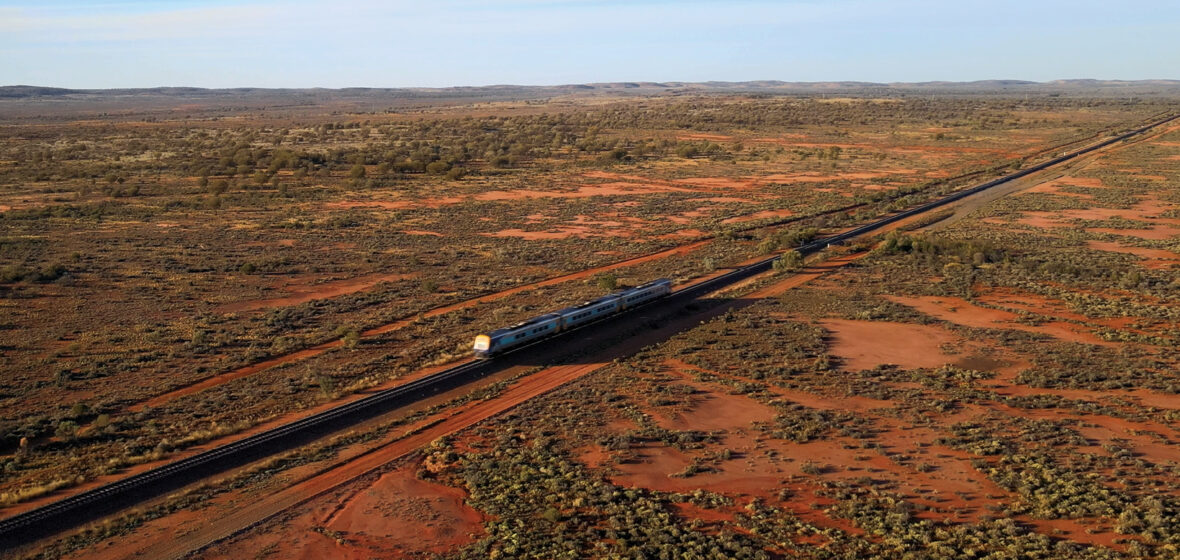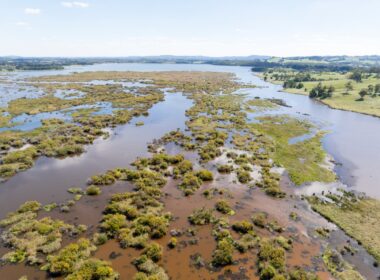The far western NSW city of Broken Hill is known as a tourist attraction, each year bringing thousands of tourists to meet its population of 18,000 people. The town is constantly welcoming new faces as teachers, police, nurses, and lawyers come to do their stint. Yet the ‘Silver City’ is also experiencing a rise in domestic violence and remains without a local drug and alcohol rehabilitation clinic. Locals old and new are drawing upon trademark community-mindedness and resourcefulness to adapt.
The senior solicitor of the Aboriginal Legal Service (ALS) in Broken Hill, Tom Russell, likens Broken Hill to the American city of Reno in Nevada, known as ‘The biggest little city in the world’. “Broken Hill’s in a similar vein to me. It’s like the biggest small town in New South Wales,” he says.
Although it’s technically part of NSW, in many ways the city operates as an outlying South Australian town.
It’s only a six-hour drive away to Adelaide which is a lot closer than the 12 to 14 hours’ drive to Sydney. And it’s on Australian Central Standard Time, a peculiarity for many visitors.
The young solicitor Russell — originally from Sydney—is hard-working and has embraced the life and workload of the outback. He is coming up to his two-year anniversary of working in Broken Hill, after he moved here from Dubbo.
“You’re in court, you know, every day or most days. We’ve got a two-solicitor office and we cover a large kind of geographic area and the court is full time so there’s no off-court week,” he says.
“The court always runs whether in Broken Hill, Wilcannia or Wentworth. It’s a heavy workload.”
“It’s not uncommon that you have four or five hearings a day. The most hearings I’ve had is 11 hearings on a single day. You could have a dozen hearings in a week.
“But at the ALS, you just have a big armful of matters every day and you’re just chopping through as best you can because you want to keep the court happy and client happy and you’re trying to do the best kind of job that you can.”
Tom is from ‘away’ which is how everyone describes themselves if they’re not born and bred in Broken Hill. Home for Tom is in Balmain, in inner-Sydney. He decided to go west to do his practical legal training at Legal Aid in Dubbo before parlaying it into his first practitioner role at the ALS.
After time in Dubbo, Broken Hill didn’t seem so remote, so he moved further west. Since arriving he’s travelled the region to explore its events such as the Tibooburra Rodeo and the Pooncarie Races.
The local circuit registrar Riley Bomford is President of the “mighty” North Broken Hill Cricket Club and convinced Tom to join the team. He says the standard of the cricket competition is quite good with five teams – North, South, Central, West and Warriors.
“We won the A grade, B grade and the women’s competition last season. So, swept … all three competitions. I’m a bit of a bowling all-rounder,” he says.
Working in a small town brings its own set of unique challenges like conflict of interest, which Tom and his colleague try to manage as best they can or send to Legal Aid.
“You’re always juggling complainants and clients. And your complainant one day will be your client another day,” he observes.
“You’ll often hear things just on the grapevine that’ll inform your sense of the overall picture – conflicts between different families or different people.
“But because the community is so close-knit, the longer you’re here, the more pieces of the puzzle you can put together and you get an idea about the overall picture over time. And you’ll start to make connections and fill in the story.”
He’s pragmatic about conflict, which he points out even the locally based Magistrate Jacqueline Trad has to manage.
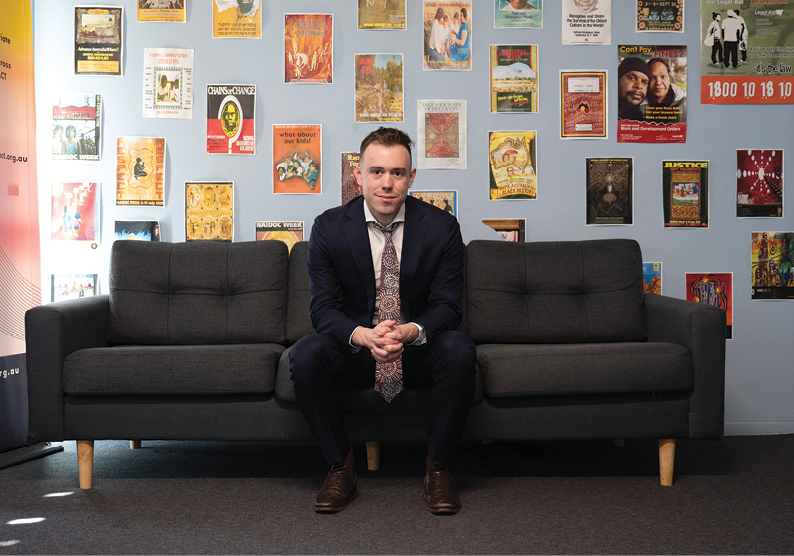
“You’ve got to be flexible in a country court. The magistrate knows everyone as well. One day in the witness box will be a person they’re dealing with as a defendant the next day,” he says.
“If we enforced the strictest interpretation of what amounts to a conflict or in what circumstances a magistrate should recuse themselves, the court would just grind to a halt and it couldn’t function. And we couldn’t function. But you’ve just got to be smart about it and really think about when it’s just not appropriate for you to act in a particular case.”
The circuit court sits two days a month in Wilcannia, a remote indigenous community 200km away with a population of about 700 people. Wilcannia is part of the Central Darling Shire, which is the size of Tasmania and has been under administration for a decade. According to the 2021 Census, only 34 per cent of the community in Wilcannia say they work.
“When I first came out here people would say don’t even stop in Wilcannia. You kind of get this impression of some godforsaken place. But then you actually get there and you hit the ground and you start talking to people and they’re actually quite friendly. I’ve never felt unsafe in Wilcannia. Everyone’s really nice to you,” says Russell.
Once a month the circuit court travels 260km to Wentworth for a week. Wentworth is on the New South Wales side of the border it shares with Victoria.
“DV is obviously a very big part of your caseload, you know in places like Wentworth, where you’ve got populations that live on missions in inadequate housing. That’s always a big risk factor,” he says.
The mission Tom is referring to is the Coomealla mission, which is just down the road at Dareton.
“You got generations of clients that have lived and died on the ‘mish’ and it’s the same thing in Wilcannia. There’s kind of areas on the edge of town, kind of like ramshackle housing, it’s dirt roads, it’s not gazetted properly. And you try and find it on Google Maps, and it leads you to the wrong place and you’ve got to know where so-and-so lives on the mission,” he says.
The Growth of Legal Aid Broken Hill
Five years ago, Steven Wright was working for Legal Aid in Dubbo when a proposal was put forward to have a criminal solicitor based in the Broken Hill office. It was his partner who suggested to him to go for the position and Steven says he hasn’t looked back.
He says when he first moved here, he was running an office out of a granny flat behind Lifeline. They’ve since managed to relocate the office space with a view of the Line of Lode, a major tourist attraction, and increase the size of the office to 13 staff.
“If we enforced the strictest interpretation of what amounts to a conflict or in what circumstances a magistrate should recuse themselves, the court would just grind to a halt and it couldn’t function. And we couldn’t function.”
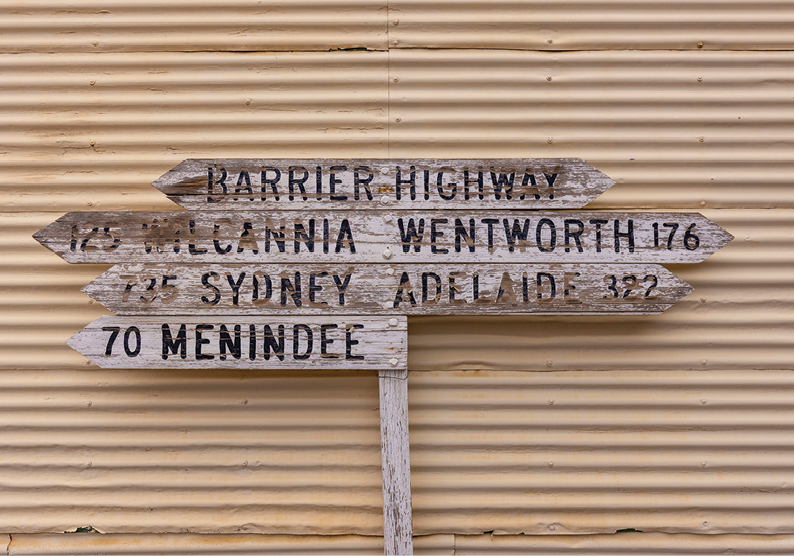
“There are four criminal solicitors, two family solicitors and a civil solicitor, as well as our administration staff and an Aboriginal field officer,” he says.
“I think there’s a recognition of the need for bigger service provision in the Far West by Legal Aid but also by private solicitors who assist in doing Legal Aid work. So the more time that we were established here, the more people were coming and seeking services. And as we grew in Broken Hill, we then had people from further afield reaching out to us for those services,” he says.
Wright decided to create a “travelling road show” to provide more legal services to clients.
“It used to be that the crime solicitors would travel out to those locations for court because that’s where the circuit court goes. And what we were seeing was people with associated issues in family law or civil law and we were trying to refer them and get them done, remotely.
“But as I said, people fall off, it’s really hard— the communication— people change phone numbers, the phones don’t work. So, what we do now is travel as a group and it’s pretty much a one stop shop for people to come and try and solve all of their legal issues,” he says.
Steven says it is difficult for clients to travel to Broken Hill from Wilcannia and it was deterring them from seeking legal help.
“I think one of the other things that’s happened is an increase in legal education since we’ve been here. So, a lot of people were dealing with issues that they might not have realised that a solicitor could assist with, like fines and debt and mortgage stress and things that traditionally I don’t think they would have necessarily seen a solicitor for,” he says.
The Magistrates Early Referral Into Treatment (MERIT) Program has also expanded in the time he has been in Broken Hill.
“Prior to Legal Aid coming to Broken Hill, that service’s numbers were dwindling and it’s really reliant on referrals from solicitors who are seeing clients who might benefit from it. There’s been a huge uptake and that team has expanded considerably in the time that I’ve been in town. It is an excellent service,” he explains.
Steven says the Broken Hill service is unique in that it offers both drug and alcohol substance abuse treatment.
“It provides an opportunity for people to go and seek treatment and counselling for their drug and alcohol issues, which are often intertwined with their legal issues and complete a 12-week program. At the end of that program, those at MERIT write a report for the magistrate and the magistrate can take that into consideration in relation to their sentence,” he says.
“Obviously if they’ve done well and they’ve reduced the amount of drugs and alcohol that they’re using, that reduces their future criminogenic factors and reduces the need for a harsher penalty, to make sure that they don’t come back and reoffend because they’ve already been engaged in treatment.
“One thing that I really love about MERIT in Broken Hill is they’re very proactive in not just finishing the 12-week program but what happens to our clients after that. And we’ve had some excellent referrals to long term residential rehabilitation services. Obviously, we don’t have them in Broken Hill, so it’s very difficult to find a spot for people to go to rehab in Broken Hill, but they work really hard to find places even across the border in South Australia.”
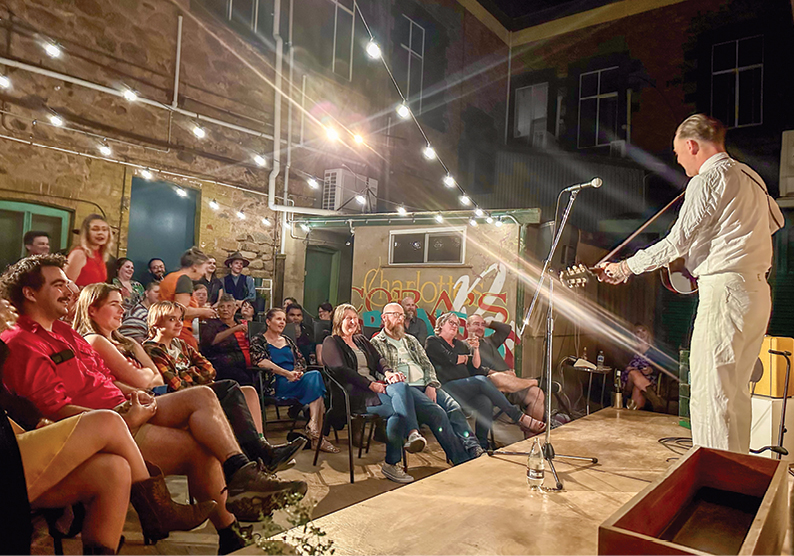
In April, the town was shocked by the sudden closure of The Barrier Truth newspaper. Wright says it’s necessary for the local media to keep Broken Hill informed about what’s happening in the courts.
“I think that the media certainly has a place to play and the principle of having an open court is certainly one which is very much entrenched in what we do,” he says.
In particular, Wright cites the case of a local Aboriginal woman who successfully challenged her arrest for breaching bail, in the NSW Court of Appeal.
“Those options in relation to what police can do for a breach of bail have always been in the legislation but it was never settled whether they had to consider those or whether that was a discretion that they could use…. And the court of appeal said where police don’t consider their alternatives to arrest, then they’re not acting within their powers and the arrest was deemed to be unlawful,” he says.
Domestic violence on the rise in the far west
It’s mid-May when Yvette Smith from the Darling River Country Women’s Association (CWA) is talking to ABC Broken Hill presenter Patrick Reincke. Smith also happens to be an Inspector for the Barrier District of NSW Police, although she is talking to Reincke in her capacity as a local and CWA executive member. Smith has returned from attending the CWA state conference in Coffs Harbour, where an urgent motion was passed – put up by the state executive, of which she is a member – calling for, among other things, a national register for domestic violence offenders. She explains the register would enable someone to check if a person they are in a relationship with has previously been convicted of a domestic violence offence, or has an AVO out against them.
Domestic violence incidents have increased remarkably in the Far West. Statistics from the NSW Bureau of Crime Statistics and Research (BOCSAR) show that for the Local Government Areas of Broken Hill, the ratio of domestic violence is more than four times the state average on a per capita basis. The number of domestic violence assaults in 2023 was 357 and 105 of those were noted by police as being alcohol related. The two-year trend shows a 40 per cent increase.
BOCSAR figures do not give a ratio compared to the state average for the Central Darling Shire, as its population is under 3000. But at 162 incidents in the past year alone, it is easy to see the high prevalence of domestic violence in the region. According to BOCSAR, 111 of those incidents were alcohol related.
Tom Russell is cautious about reading too much into statistics year-to-year but believes DV is commonly related to alcohol and substance abuse.
“It’s like almost everyone that you’re dealing with will have some sort of either deprived background, mental health issues, substance abuse issues, or some combination of the three,” he says.
“I’ve never had a problem with any client. For the most part they’re really nice, friendly, cooperative and sometimes it is really hard to reconcile what you’re reading about what’s alleged with the person in front of you,” he says.
Barrier Police District Commander, Superintendent David Cooper, says an increase in offending rates is often a reflection of the community having increased awareness of the crimes, and confidence in reporting offences to police.
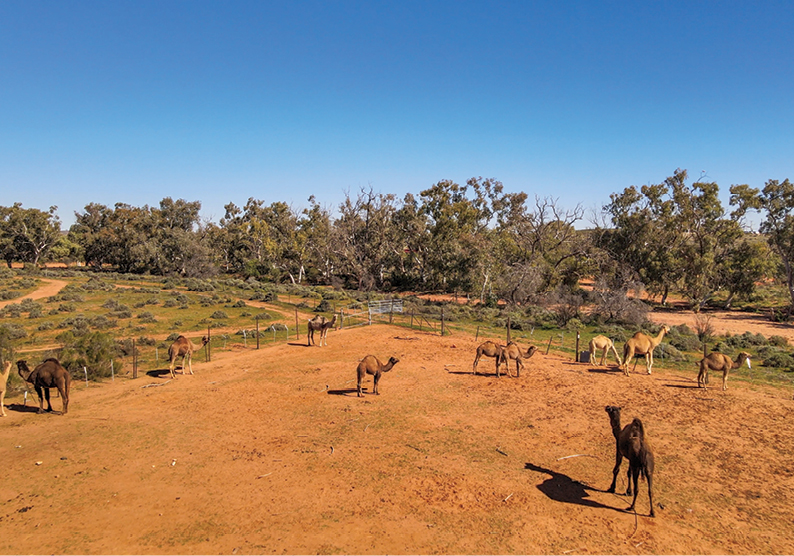
“There’s kind of areas on the edge of town, kind of like ramshackle housing. It’s dirt roads, it’s not gazetted properly. And you try to find it on Google Maps and it leads you to the wrong place”
The Far West Women’s Domestic Violence Court Advocacy Service was put to public tender and the new provider has been announced. ‘Plus Community’ will run the service from 1 July 2024 and planning for the transition has already commenced. The Staying Home Leaving Violence program, which supports women and children to remain safely in their home while the perpetrator moves elsewhere, is funded by the NSW Department of Communities and Justice. The Department has advised steps are being taken to ensure the service will continue to be delivered under another provider in light of the closure of the Far West Community Legal Centre Limited. No announcement has been made about the future service provider at this stage.
Breaking cycles of disadvantage
Rebecca Deer is the manager of NSW Health’s Violence, Abuse and Neglect Service (VANS) program and is based in Broken Hill. It’s an integrated service that responds to all forms of violence, abuse and neglect.
The service is well resourced, with funding for 16 people, although they only have 11 clinicians at present due to vacancies. The situation hasn’t been helped by a state-wide shortage of qualified and suitably experienced clinicians.
Rebecca says the strength of the community lies in resourcefulness and innovation. She explains that VANS often helps other partners to provide court support to victims.
“Being quite isolated in a rural setting, we often support our partners, whether it be the Office of Director of Public Prosecutions, or the witness intermediary program. We often support them if they’re unable to get out here, to support the victims, through their court case. They’ll often contact us with a little bit of notice to then provide support to their clients when they’re going through the court system.”
Tom Russell agrees the MERIT program has helped some of his clients personally and improved their court outcome. However, he says it is still limited and an example of a patchwork of services linked to the justice system.
“The core of the program is weekly counselling sessions, which are great but obviously not a substitute for full-time residential rehabilitation, although they can make referrals,” he says.
The nearest rehabilitation centre is at Warrakoo Station, which is near Mildura, in Victoria’s north- west. The Chair of the Broken Hill Alcohol and other Drug Detoxification and Rehabilitation steering Committee is 76-year-old “A-Grouper” Joanie Sanderson. An A-Grouper is a term used to describe people born and bred in Broken Hill. In the early days people were classed as A, B or C groupers by mining companies, in order to determine who to lay off first in a downturn. It’s a historical idea that still lingers in the town.
The mother of eight children has first-hand experience of the impacts of alcohol abuse. She is a Family Counsellor and has been campaigning hard for a local drug detoxification and rehabilitation centre. She says her father was an alcoholic and she has helped her son detox from alcohol.
The MERIT program is only available to people who have an ongoing court matter, which does little for families of people who have already been sentenced and call Sanderson in despair.
“I’ve had people I’ve worked with that have had young children and their partner’s been in jail. And they said, ‘my partner shouldn’t be in jail. He’s had so much trauma, he should be in a facility where he’s getting help.’ And she said, ‘the only thing that keeps me going is the fact that I know that one day he’s going to get a detox and rehab here so he can actually deal with some of his trauma.’ And that’s been our focus now. It has to be trauma-informed care,” she says.
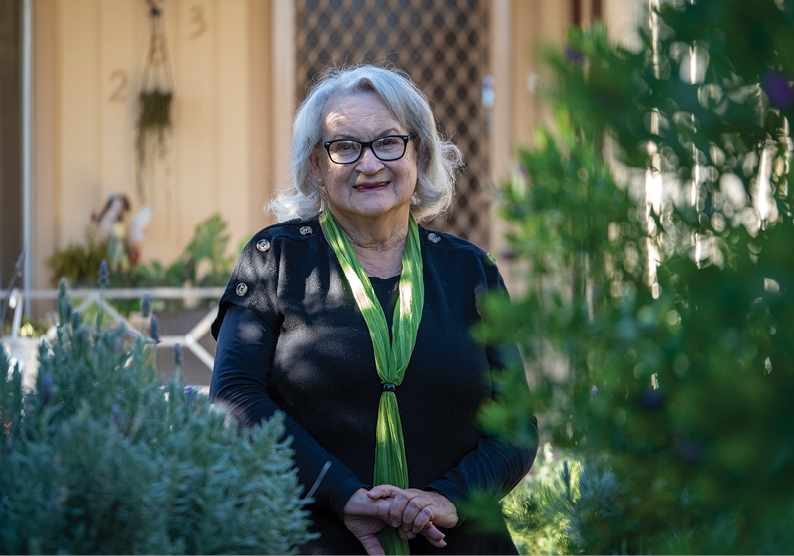
In May, Sanderson and other advocates met with the NSW Health Minister Ryan Park to push for a local centre. They’ve suggested a 23-bed detox and rehabilitation facility but have said they’d be willing to accept 15 beds. They’re currently looking for land on the outskirts of Broken Hill because people don’t want a rehab centre in town.
The Closure of the Far West Community Legal Centre Limited
On 31 January, the Far West Community Legal Centre Limited gave notice it would be closing its doors on 31 July. The Centre runs four services – The Far West Community Legal Centre (CLC), the Warra Warra Legal Service, Staying Home Leaving Violence, and Far West Domestic Violence Court Advocacy Service (WDVCAS).
The Far West Community Legal Centre Ltd, which receives funding from three funding bodies: Legal Aid NSW, the National Indigenous Australians Agency and the NSW Department of Communities and Justice, has been plagued for years with problems relating to understaffing.
Interim CEO Lisa Braid came on board in June last year with the goal of actively trying to recruit a permanent CEO for the organisation as a whole, and principal solicitors and solicitors for the Far West Community Legal Centre and Warra Warra Legal Service.
The Far West CLC had in the three years prior, seen eight principal solicitors come and go–some of them from private practice who were running their own business, but assisting with running the Centre and supervising staff on the side, or locums providing services on a fly-in-fly-out basis.
“Community legal centres obviously pay a lot less than the private sector, (which) is one reason for the difficulty recruiting solicitors, and then in Broken Hill in particular, there’s competition with Legal Aid NSW, which can pay $30,000 to $70,000 more per solicitor position. Many of the solicitors who worked for our community legal services moved across to Legal Aid Broken Hill as they have expanded. They make a lot more money, life’s better and they’ve got stable supervision,” says Braid.
In the past 12 months, they’ve considered 40 to 50 candidates for various solicitor roles. Even when they were able to find better candidates, the remoteness of Broken Hill was a deterrent.
“One solicitor had ailing parents and she thought she’d be able to catch the train back to Sydney every weekend. Obviously, that’s not possible,” she says.
“Another solicitor was close to accepting a job, but then travelled to Broken Hill to see what it was like and determined the town too remote. The location of Broken Hill is certainly a factor. The cost of living in Australia is high and regular air travel can be expensive.”
Management and supervision of the Far West CLC is currently outsourced under a sub-contracting arrangement to the Western Sydney CLC, which appointed Veselko Cuic internally as the principal solicitor for the Far West CLC. He is based in Sydney but has visited Broken Hill several times to oversee staff. He brings almost two decades of community legal experience to the role.
“If you’ve been in private practice for 20 years, you can’t wrap your head around the way a community legal centre operates quickly. It’ll take some time. Whereas me or someone else from a community legal centre knows very well,” he says.
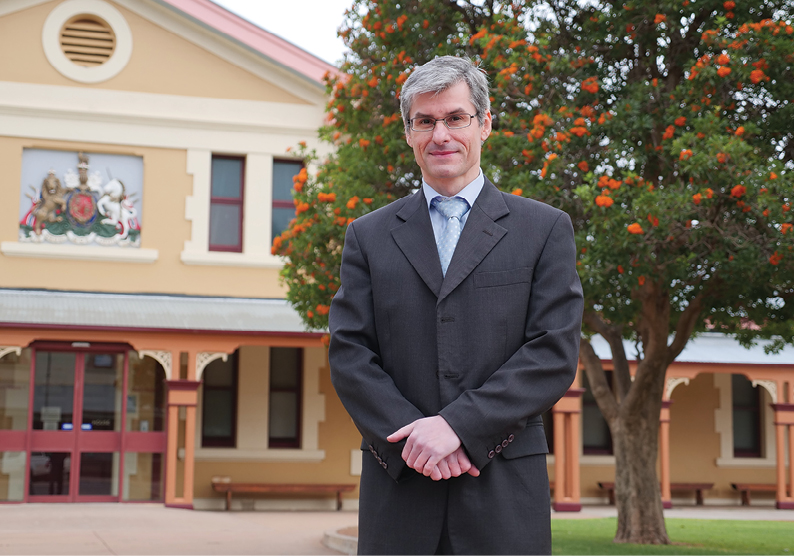
Cuic feels the new model is working well and bringing security and stability to the locally based staff– two paralegals and one solicitor who provides a traffic duty service. They also have a solicitor who is based in one of the Western Sydney CLC offices working for the Far West CLC, providing civil work for the organisation. The Centre is not only back providing duty lawyer services, but it is delivering outreach across the Far West region.
The range of matters being dealt with by the Far West CLC is broad ranging, from family law matters to boundary disputes, land occupation and ownership, social security, wills, traffic and tenancy matters.
After two visits to Broken Hill, Cuic is pleasantly surprised by the town and feels it is more laid-back, friendlier and is less stressful than living in Sydney. If he was younger and didn’t have ailing parents, he would move here. He notes how there are different challenges in the far west.
“Holding a driver’s licence here in Broken Hill for me appears to be a necessity. It’s not like Sydney where there’s bus stops everywhere. Trains are everywhere. Without a driver licence here you’re pretty much isolated, especially in the towns away from Broken Hill,” he says.
“Yesterday was the furthest I’ve been driven… Very interesting trip, I must admit. I’ve never seen so much roadkill at the side of the road… One person I saw in Wilcannia needs to apply to quash a court-imposed driver licence disqualification. He can’t come to Broken Hill to see us with no driver licence. He needs someone to give him a lift. If no one can drive him here, he can’t see us,” he says.
Anecdotally, criminal lawyer Caitlin Sankey has noticed the impact of Western Sydney CLC taking carriage of the Far West CLC.
“And we’ve definitely noticed that in the last, probably couple of weeks, where particularly traffic matters, they’ve been able to sort of help out and triage those,” she says.
However, Chair of the FWCLC Limited Martin Bass is concerned about the future of the Far West CLC, as it receives funding from Legal Aid NSW and it is unclear what arrangements have been made for the service to continue when the organisation winds up.
“There’s a new four-year funding agreement that… comes into place from 1 July 2025, which will be put to public tender. This leaves the 12 months from 1 July 2024-30 June 2025 unaccounted for.”
In a written response, Legal Aid NSW said it is working with the NSW Government to find a replacement service for the Far West CLC to minimise service interruption and ensure an on the ground presence for the community as a matter of urgency.
“Continuity of community legal services is paramount and funding will prioritise a CLC provider in proximity to the Far West region, and with experience delivering services to regional communities,” the response said.
As for the Warra Warra Legal Service, Lisa and Martin are working with the National Indigenous Australians Agency to ensure service continuity after 30 June 2024.
Currently the service is being run by Kathleen Wincen, CEO of the Aboriginal Family Legal Service Southern Queensland, which is based in Toowoomba and shares a vast geographic area across the western state boundary with the Far West.
A new solicitor, Shefali Atwal, has been recruited to Warra Warra along with a paralegal. Beyond the current sub-contracting arrangement with the Aboriginal Family Legal Service Southern Queensland which ends on 30 June 2024, the Australian Government is responsible for the future of the services.
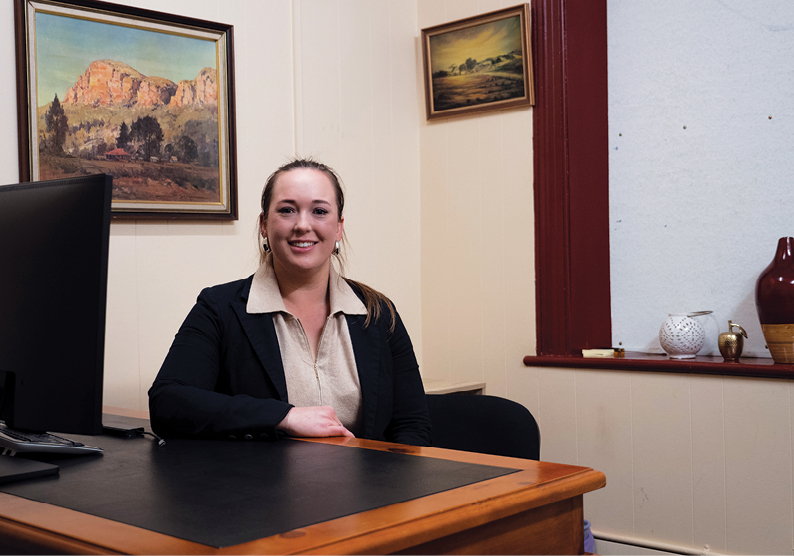
Investing in the community
Caitlin Sankey is sitting in the boardroom at the Lifeline office in Broken Hill’s main street. The board of seven is discussing how they reach more people with local services.
Everyone in town likes to visit the local Lifeline ‘tip shop’ for a bargain. Its profile is large, but they want to find a way to promote its Connect Centres and different initiatives to help people access help before things get too tough.
Its local ambassador Brendan Cullen has lifted the profile of its services and fundraising support with his successful English Channel swim: an incredible feat considering the farmer lived more than 60km from the Broken Hill swimming pool, and 600km from a beach.
Sankey is a solicitor and has served for about 18 months as a director of the charity, which services the Far West and regional South Australia. She was invited onto the board by local station owner and Chair of the board Sam Maiden from Mt Gipps Station, north of Broken Hill. She says the red desert, blue sky and heat have somehow captured the heart of a girl from Sydney’s Northern Beaches.
“I think her commitment is next level and I still see that. I don’t quite know how she fits Lifeline into her challenging days, but she does,” Maiden tells the Journal.
Sankey works for Silkman Austen Brown Lawyers, which has its head office in Dubbo. She moved here straight after university and enjoys the diversity of the work. She says it’s the only firm in town that does private work for crime. Although most of her work is criminal, she is called on to do almost any type of law.
“I really like the criminal (work), just for the personal nature of it, because people will have an issue they come to you for, but that’s really just a symptom often of what else is going on. So I’ll find that people have gotten to a certain point, something’s happened, but there’s factors that have led up to that, and… you try and help them through,” she says.
Since moving to Broken Hill four years ago, Sankey’s life is a complete change from the hustle and bustle of Sydney. She loves it and sees herself here for the foreseeable future.
“I actually met my partner while I was here going on a road trip to Western Australia for a couple of months. And I knew I wanted to do something different other than work in a city. So I thought, what better opportunity than to work in Broken Hill?” she says.
However, Sankey does admit that she didn’t quite appreciate how far it was from Sydney.
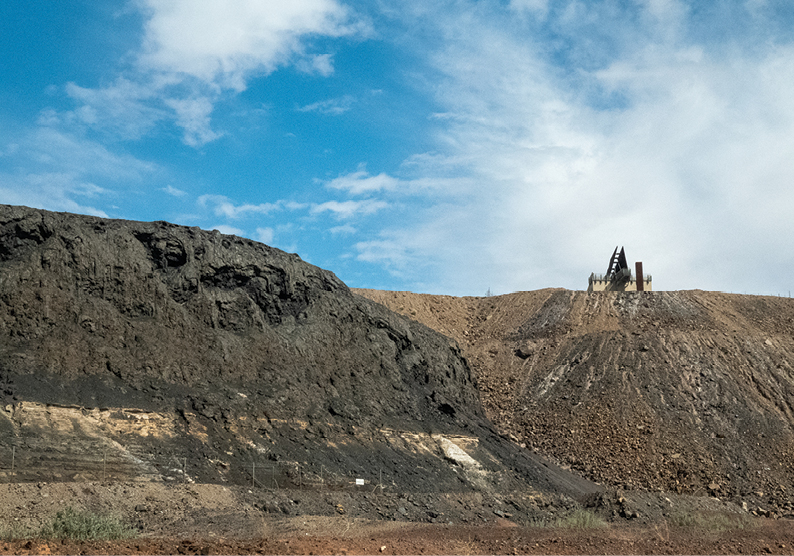
“Flights aren’t too bad time wise. They’re about two and a half hours to Sydney, but they’re so expensive, sometimes you might get a cheap flight for just under $300 one way but it’s a lot to go back and then you’ve got to get that time off. So that’s one thing that did surprise me,” she says.
Sankey has since bought a house with her partner and is enjoying the three-minute commute to work, the laid-back lifestyle and the landscape and history of the town. She’ll often head away for the weekend with a swag and esky to attend a ‘gymkhana’.
“So they’re sort of like your horse races and events. You’ve got your barrel racing and thread the needle … I obviously don’t ride, but from what I understand it’s about the skill of the rider and the horse,” she says.
“Sometimes they’ll have bikehanas – so it’s on the motorbikes. So same sort of events that you’d have with the horses but on the bikes and they’re really good as well.”
“Then at White Cliffs you’ve got the rodeo on the Sunday as well and they’ve got things like bike versus horse. So you race the bike or they’ll verse each other, but they’re just really fun events,” she says.
Earlier this year the Law Society of NSW issued a press release highlighting the shortage of solicitors in the Far West of NSW. President Brett McGrath noted there were only 15 solicitors from six law practices servicing almost 160,000 square kilometres.
“Access to proper legal advice can mean the difference between incarceration and an accused person keeping their job and supporting their family,” he said.
“Solicitors working in these regions can make a life changing difference to people facing diverse legal challenges from criminal law, family law, tenancy and helping financially vulnerable clients deal with credit and debt issues before they become insurmountable.”
Sankey says the diversity of the work, hands-on experience and being able to make a difference in people’s lives are among the reasons more solicitors should consider Broken Hill.
The town follows AFL and has four clubs – Central, North, South and West. Each club has its yearly ball which forms a strong part of the town’s social calendar.
“It’s really just dress up, have a meal, have a drink, have a dance,” Sankey says.
“Often you don’t have to be from that club to go [but] it’s a really good sense of community there as well.”

